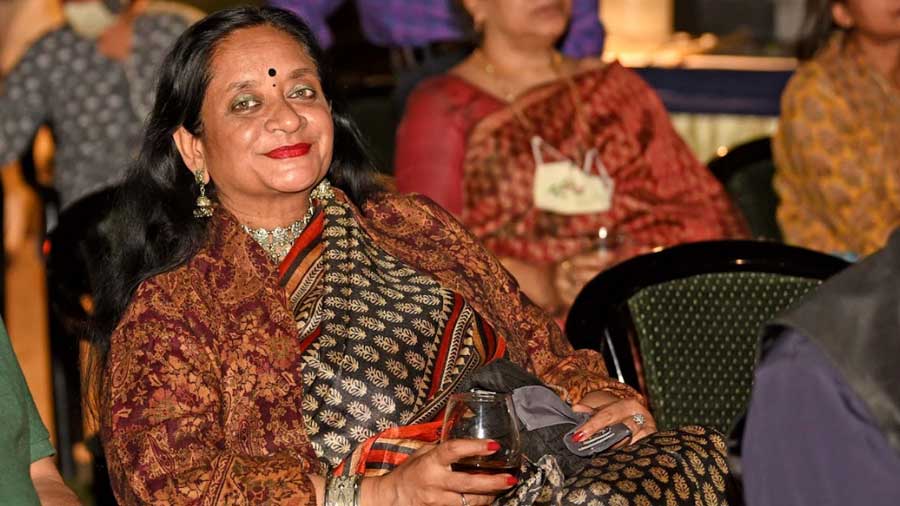What better way to celebrate Women’s Day than interviewing someone who I have respected and looked up to for years as a woman achiever? Nayantara Palchoudhuri, often referred to as ‘NTPC’.
I first met Nayantara-di at a Rotary District event when I had just joined Rotary. There was something awe-inspiring in her humility and there started my fangirl journey. We kept meeting at events and parties. Soon a bond grew between us. Not only did she encourage and mentor me but also introduced me to several business heads and groups.
I felt a sense of pride as she was my school (MHS) alumni too, and I really grew to admire her quiet strength and determination.
She got busier and busier – heading the BNCCI to taking on the role of Honorary Consul of Norway to being the Rotary governor and so much more – but she would not forget to call and congratulate me at my daughter’s arrival, to speak to my doctor when I was in hospital, and always enquire how I was.
Forever warm and affectionate, she has gone where very few women in India have. This chat is my salute to my mentor, Nayantara Palchoudhuri, on being elected the first lady chairperson of the ITA (Indian Tea Association).
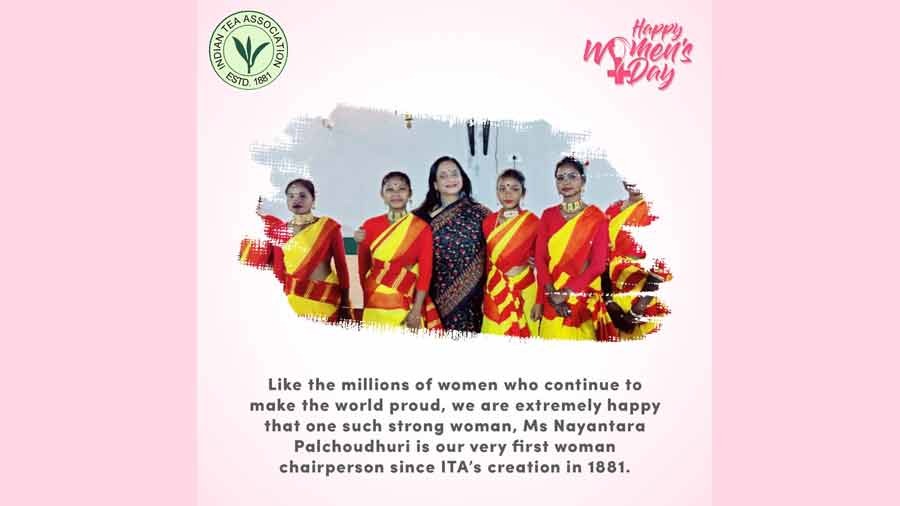
What does your current role entail?
Ours is a labour-intensive industry with many stakeholders. So there are multiple challenges. But I feel honoured to be elected for my hard work in the industry. We need to…
- engage with producers, brokers and buyers, in other words stakeholders
- look for new export market overseas and foray deeper into the domestic market
- lobby between state and central government
- implement, in association with the Tea Board, several unique schemes the government has launched
Our biggest asset is the labour force, hence our top priority is their welfare. We have to reach a sustainable situation where both sides stand to gain. The tea industry in India has not grown by leaps and bounds because of the superior quality of produce only; we owe it to our dedicated workforce. Every garden is like a family and their welfare is our duty.
In my capacity as the Vice Chairperson of the TRA (Tea Research Association) we need extensive R&D to implement all the new innovations and mechanisations. We need hardworking youngsters in this industry to roll out the policies of the state and central governments, resulting in qualitative improvement to human resources and the production quality.
In tea plantations, 60 per cent of the labour force is women
![‘These women [tea garden workers] come to work after completing their household chores and we are responsible for their health, nutrition and overall well-being. They are our asset to the industry,’ says Palchoudhuri](https://assets.telegraphindia.com/telegraph/2022/Mar/1646743839_1637088123_06bus-tea4c.jpg)
‘These women [tea garden workers] come to work after completing their household chores and we are responsible for their health, nutrition and overall well-being. They are our asset to the industry,’ says Palchoudhuri TT archives
How have you turned your being a woman into an advantage here?
In the tea plantations, 60 per cent of the labour force is women. Being a woman has helped me engage with them at different levels. I can empathise with them. These women come to work after completing their household chores and we are responsible for their health, nutrition and overall well-being. They are our asset to the industry.
We have a sustainability cell with women and children where we engage with the likes of the UNICEF and their partners to concentrate on women’s health and other issues. I can relate to all of this as a woman. We concentrate on menstrual and pre- and postnatal care, iron deficiency and their total well-being. These women are our life force.
We have a concept called Nutrition shops, where we have collaborated with WHO and provide cereals fortified with Vitamin A and other minerals. Most gardens have crèches for children and primary schools so literacy is not an issue. We are also working on the skill development of adolescents. We have Mothers clubs, Adolescent Girls clubs. We are going to felicitate them on International Women’s Day. So you see the concept of workforce welfare is from “cradle to grave”.
Being a fourth-generation planter, I am involved completely in our family plantations: Mohurgong and Gulma Tea Estates and Washabarie Tea Co. I am also involved with a big plantation group in Assam as an independent director.
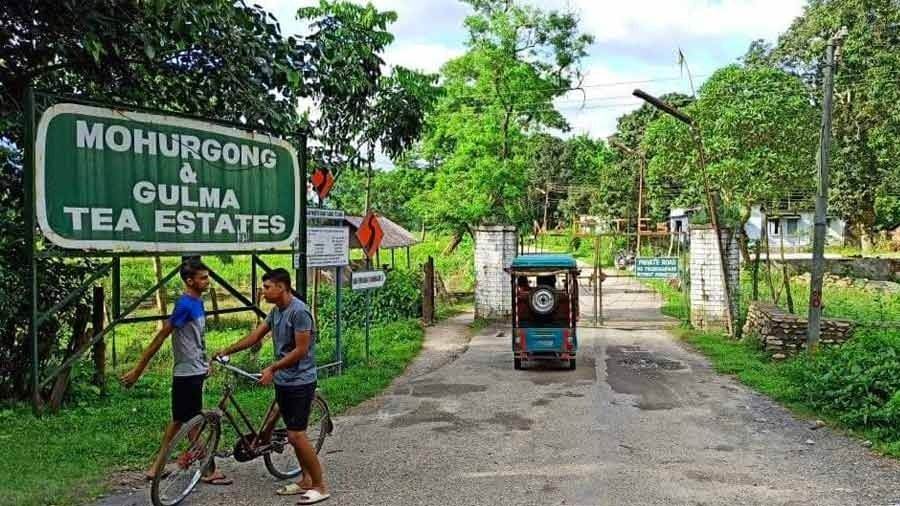
Mohurgong and Gulma Tea Estates, two family plantations of Palchoudhuri @Mohurgong & Gulma Tea Estate/Facebook
Hard work, humility and empathy
Take us through some of your milestones, challenges and learnings on your journey…
I joined the family business straight after coming back from the LSE; I didn’t have much of a choice in those times and neither did I question it. My father hand-held me initially. Of course I trained and did a number of courses to learn the ropes of the tea trade. But however educated you are one must not forget the human touch. This is what I would like to advise the new generation. Hard work, humility and empathy.
Being elected the head of the BNCCI (Bengal National Chamber of Commerce & Industry) was a huge challenge, not only as a woman but the mammoth responsibility that came with it. I was the first elected lady after 120 years so I had to prove my worth. Leadership comes with a price but thanks to the values imbibed from my parents I balanced all of it well and I learnt so much.
Rotary has taught me a lot of leadership skills too.
Representing Norway in Eastern India as the Honorary Consul since 2009 was a turning point of sorts. I realised that I was representing the value system, the ethos of a diverse culture like ours. I needed every bit of my leadership acumen to promote trade but also our culture. Norway is not only a beautiful country with wonderful people but human rights and gender equality are very high on their agenda. This is something I strongly believe in and it is important for the progress of any country.
So, my challenges are a blessing and an asset.
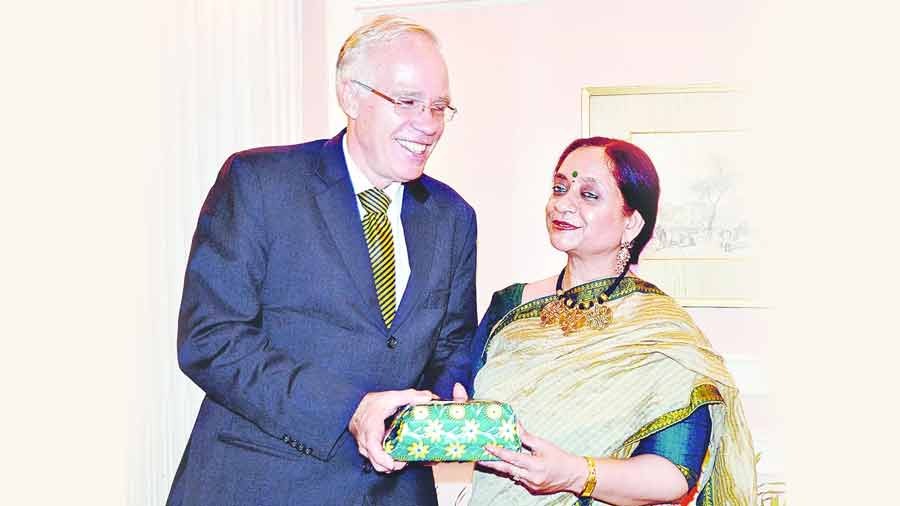
File photo of Palchoudhuri with former Norwegian ambassador to India, Eivind S. Homme TT archives
Reach out to the new generation by promoting the health benefits of tea
What are the primary challenges for the tea industry and the way forward?
You see we have to hold on to the traditional markets as far as exports are concerned but also venture into newer pastures. We have to reach out to the new generation by promoting the health benefits of tea to the health-conscious youth. As the association chief, that is my priority.
A generic promotion in the domestic market with a plethora of flavoured teas is definitely the current plan, plenty of research has gone into this. Myths like tea influences the complexion and harms the liver, need to be busted. In the export market, we have to present the various kinds of tea according to the terroir and give tea a makeover which is smart and youthful. India has a wide variety to offer.

‘We have to reach out to the new generation by promoting the health benefits of tea to the health-conscious youth,’ says Palchoudhuri TT archives
I must say, the digital platforms have helped us during the pandemic. We can easily say tea is a health drink and a cup of tea in its conservative form is still the cheapest beverage. Government policy of enhancing tea tourism will boost tea drinking.
'I am a self-motivated person'
Who or what has been your inspiration?
Life.
I am a self-motivated person and the key to my success is time management.
We are a traditional Brahmo family. My parents have never had a gender bias so we sisters could choose the course of our lives. Not only did my father teach me work ethics and everything that I know about the tea industry but a set of values which I still imbibe. My mother is the oldest surviving student of Visva-Bharati University. She has been the backbone of the family. My grandmother Ila Palchoudhuri was the first woman MP in Bengal. So I can say I have grown up amidst empowered women. I have learnt a great deal from my mentors at various levels and the challenges and failures I have faced.
Every time you deal with a new issue or relationship, change the hat
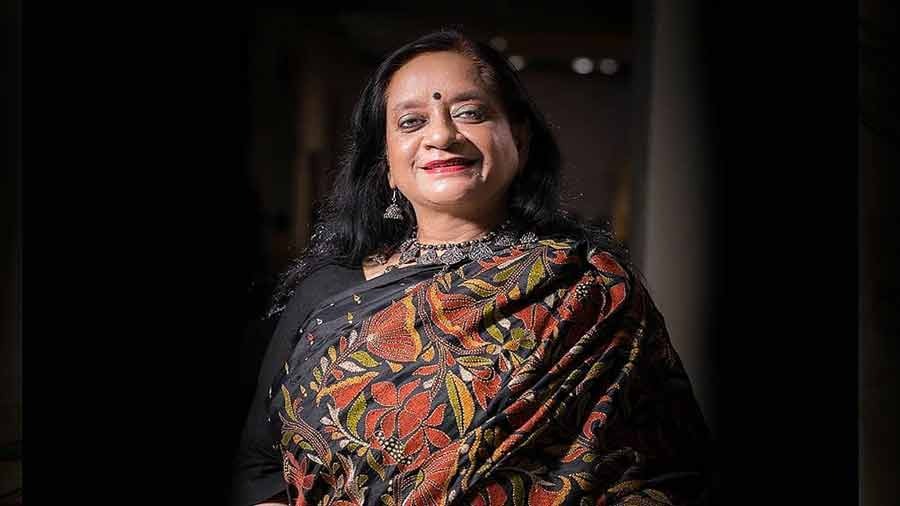
‘I am not a feminist. I was trained by my father to put in my best in whatever I do, hence there is no substitute for hard work. We all have to prove ourselves,’ says Palchoudhuri @Moda Heritage/Facebook
What is your message or advice to younger women who look up to you as a role model?
I had to work hard and set goals for myself, which I achieved. I would like more women to come forward so I can groom them for leadership positions.
I am not a feminist. I was trained by my father to put in my best in whatever I do hence there is no substitute for hard work. We all have to prove ourselves. We all have to overcome challenges if we have to excel. One learns a great deal.
My advice to women like you and the younger generation is the mantra of time management. We wear so many hats, every time you deal with a new issue or relationship, change the hat. So every thought stays with that hat or compartment, when time comes you deal with it. It is impossible to manage everything together.
Finally, what does NTPC do in her free time?
There is hardly much of it but I have some lovely friends who I chill with. We brainstorm, we share, we laugh……
Somini Sen Dua is a publicist and social entrepreneur.
